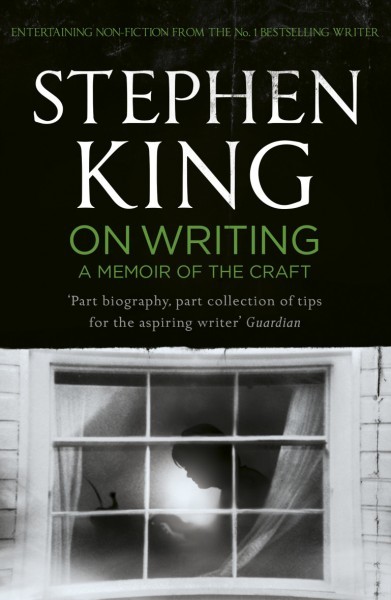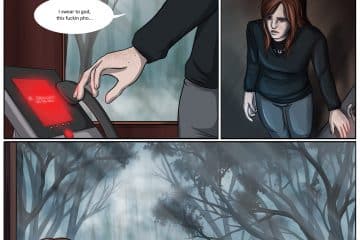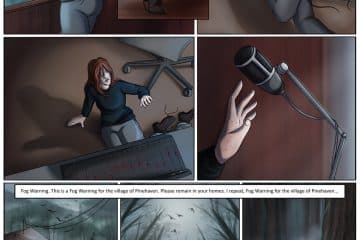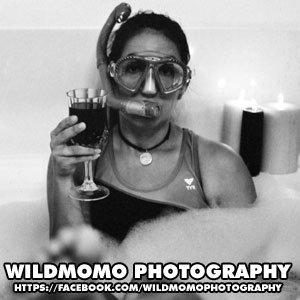When I started my master’s degree in London back in September 2015, we were presented with a huge list of books our professors suggested. As well as these, we would have guest lecturers come in every fortnight to talk about their craft and suggest other texts. Safe to say, we were pretty overwhelmed by the density and price tags, but a few of us grabbed some of the ones our teachers preferred, particularly Aristotle’s Poetics. But I couldn’t find an interesting book that had a more modern approach to writing. They were either too long, too academic, or just plain boring.
Thankfully in our second week of classes, my prayers were answered.
Our first guest lecturer was Claire McGowen, the author of the Paula Maguire series of crime novels and her acclaimed book The Fall. At the end of her talk, she told us if there was only one book we were going to read about writing, it should be Stephen King’s, which in her opinion was the bible to aspiring writers.
And I have to agree with her wholeheartedly.
Many other books about writing only focus on teaching techniques that the author prefers, or claim to hold all the answers to writing the next bestseller. Stephen King’s book is completely separate to this, and instead blends a memoir of his early years with techniques he’s learned from other teachers and his years of experience. The book is broken up into five sections:
C.V.: Where he talks about his life and how it made him into the writer he is today.
What Writing Is: Discusses the importance of writing.
Toolbox: Going into the technical side of writing, the significance of vocabulary, grammar, and style.
On Writing: A much more precise look at writing, and the how reading and being analytical will better yourself as a writer.
On Writing: A Postscript: The final chapter concerns King looking back at the accident in 1999, when he was struck by a van while walking along a road.
The book gives approachable, helpful insight that isn’t overly technical, like many other writing guides. I especially like the style, as it doesn’t feel like a ‘How To’ guide, instead it reads like a comfortable conversation you might have at a Q&A session with him or a relaxed drink at a bar while talking to a professor you admire. He uses examples from his own work, how he came to those ideas and the process of writing some of his best work.
One segment I enjoyed in particular is the development of his first novel Carrie, where he discusses how the book came to be. Growing from his strange afternoon in an empty female change room, his wife fishing out the discarded idea out of a dustbin and telling him to keep working at it, to the stories of the two young women who helped inspire the character of Carrie White.
If you’re interested in writing novels as a profession, this is the first book I’d recommend! Not only is it a helpful guide to bettering yourself as a writer, but it’s a fascinating look at Stephen King’s life, and give you a solid understanding of just how his wonderful mind works. To end this review, see below for some of the best bits of advice from the book!
-SSQ
Stephen King’s Top Twenty Rules for Writing!
- First write for yourself, and then worry about the audience. “When you write a story, you’re telling yourself the story. When you rewrite, your main job is taking out all the things that are not the story.”
- Don’t use passive voice. “Timid writers like passive verbs for the same reason that timid lovers like passive partners. The passive voice is safe.”
- Avoid adverbs. “The adverb is not your friend.”
- Avoid adverbs, especially after “he said” and “she said.”
- But don’t obsess over perfect grammar. “The object of fiction isn’t grammatical correctness but to make the reader welcome and then tell a story.”
- The magic is in you. “I’m convinced that fear is at the root of most bad writing.”
- Read, read, read. ”If you don’t have time to read, you don’t have the time (or the tools) to write.”
- Don’t worry about making other people happy. “If you intend to write as truthfully as you can, your days as a member of polite society are numbered, anyway.”
- Turn off the TV. “TV—while working out or anywhere else—really is about the last thing an aspiring writer needs.”
- You have three months. “The first draft of a book—even a long one—should take no more than three months, the length of a season.”
- There are two secrets to success. “I stayed physical healthy, and I stayed married.”
- Write one word at a time. “Whether it’s a vignette of a single page or an epic trilogy like ‘The Lord of the Rings,’ the work is always accomplished one word at a time.”
- Eliminate distraction. “There’s should be no telephone in your writing room, certainly no TV or videogames for you to fool around with.”
- Stick to your own style. “One cannot imitate a writer’s approach to a particular genre, no matter how simple what that writer is doing may seem.”
- Dig. “Stories are relics, part of an undiscovered pre-existing world. The writer’s job is to use the tools in his or her toolbox to get as much of each one out of the ground intact as possible.”
- Take a break. “You’ll find reading your book over after a six-week layoff to be a strange, often exhilarating experience.”
- Leave out the boring parts and kill your darlings. “(kill your darlings, kill your darlings, even when it breaks your egocentric little scribbler’s heart, kill your darlings.)”
- The research shouldn’t overshadow the story. “Remember that word back. That’s where the research belongs: as far in the background and the back story as you can get it.”
- You become a writer simply by reading and writing. “You learn best by reading a lot and writing a lot, and the most valuable lessons of all are the ones you teach yourself.”
- Writing is about getting happy. “Writing isn’t about making money, getting famous, getting dates, getting laid or making friends. Writing is magic, as much as the water of life as any other creative art. The water is free. So drink.”
On Writing: A Memoir of the Craft
-
Writing Style
-
Usefulness
-
Readability
-
Interesting Content
User Review
( votes)

















